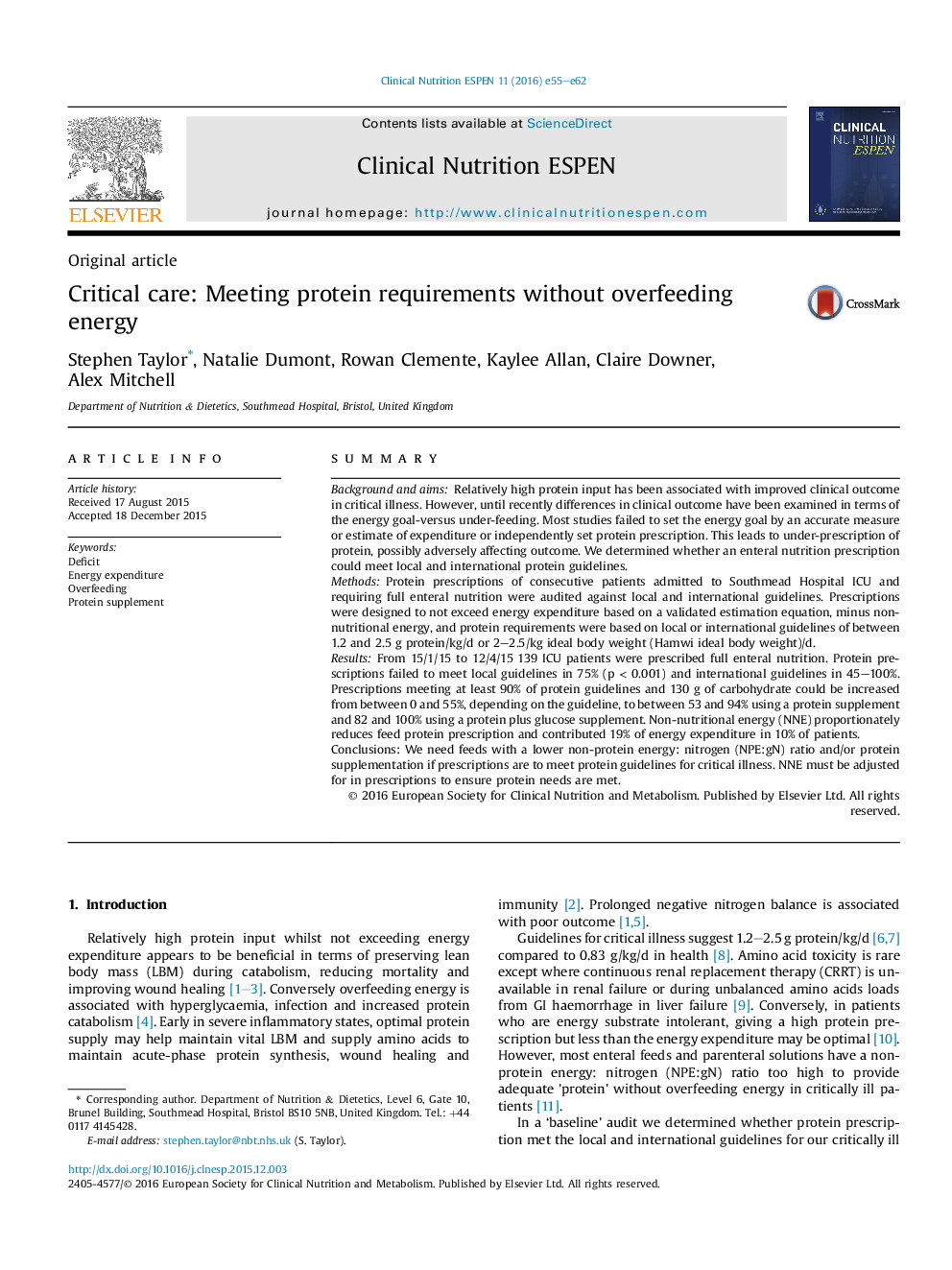| کد مقاله | کد نشریه | سال انتشار | مقاله انگلیسی | نسخه تمام متن |
|---|---|---|---|---|
| 2688935 | 1564728 | 2016 | 8 صفحه PDF | دانلود رایگان |
• Feeds with a NPE:gN ratio of >100:1 failed to meet protein requirements in 75% of the studied critically ill patients.
• Protein prescription may be adequate in about 50% of patients with a feed NPE:gN ratio of >80:1.
• Addition of protein ± carbohydrate supplements meets protein needs of most critically ill patients.
• Patients 30, receiving significant NNE or hypocaloric feeding are most at risk from protein deficit.
SummaryBackground and aimsRelatively high protein input has been associated with improved clinical outcome in critical illness. However, until recently differences in clinical outcome have been examined in terms of the energy goal-versus under-feeding. Most studies failed to set the energy goal by an accurate measure or estimate of expenditure or independently set protein prescription. This leads to under-prescription of protein, possibly adversely affecting outcome. We determined whether an enteral nutrition prescription could meet local and international protein guidelines.MethodsProtein prescriptions of consecutive patients admitted to Southmead Hospital ICU and requiring full enteral nutrition were audited against local and international guidelines. Prescriptions were designed to not exceed energy expenditure based on a validated estimation equation, minus non-nutritional energy, and protein requirements were based on local or international guidelines of between 1.2 and 2.5 g protein/kg/d or 2–2.5/kg ideal body weight (Hamwi ideal body weight)/d.ResultsFrom 15/1/15 to 12/4/15 139 ICU patients were prescribed full enteral nutrition. Protein prescriptions failed to meet local guidelines in 75% (p < 0.001) and international guidelines in 45–100%. Prescriptions meeting at least 90% of protein guidelines and 130 g of carbohydrate could be increased from between 0 and 55%, depending on the guideline, to between 53 and 94% using a protein supplement and 82 and 100% using a protein plus glucose supplement. Non-nutritional energy (NNE) proportionately reduces feed protein prescription and contributed 19% of energy expenditure in 10% of patients.Conclusions: We need feeds with a lower non-protein energy: nitrogen (NPE:gN) ratio and/or protein supplementation if prescriptions are to meet protein guidelines for critical illness. NNE must be adjusted for in prescriptions to ensure protein needs are met.
Figure optionsDownload as PowerPoint slide
Journal: Clinical Nutrition ESPEN - Volume 11, February 2016, Pages e55–e62
